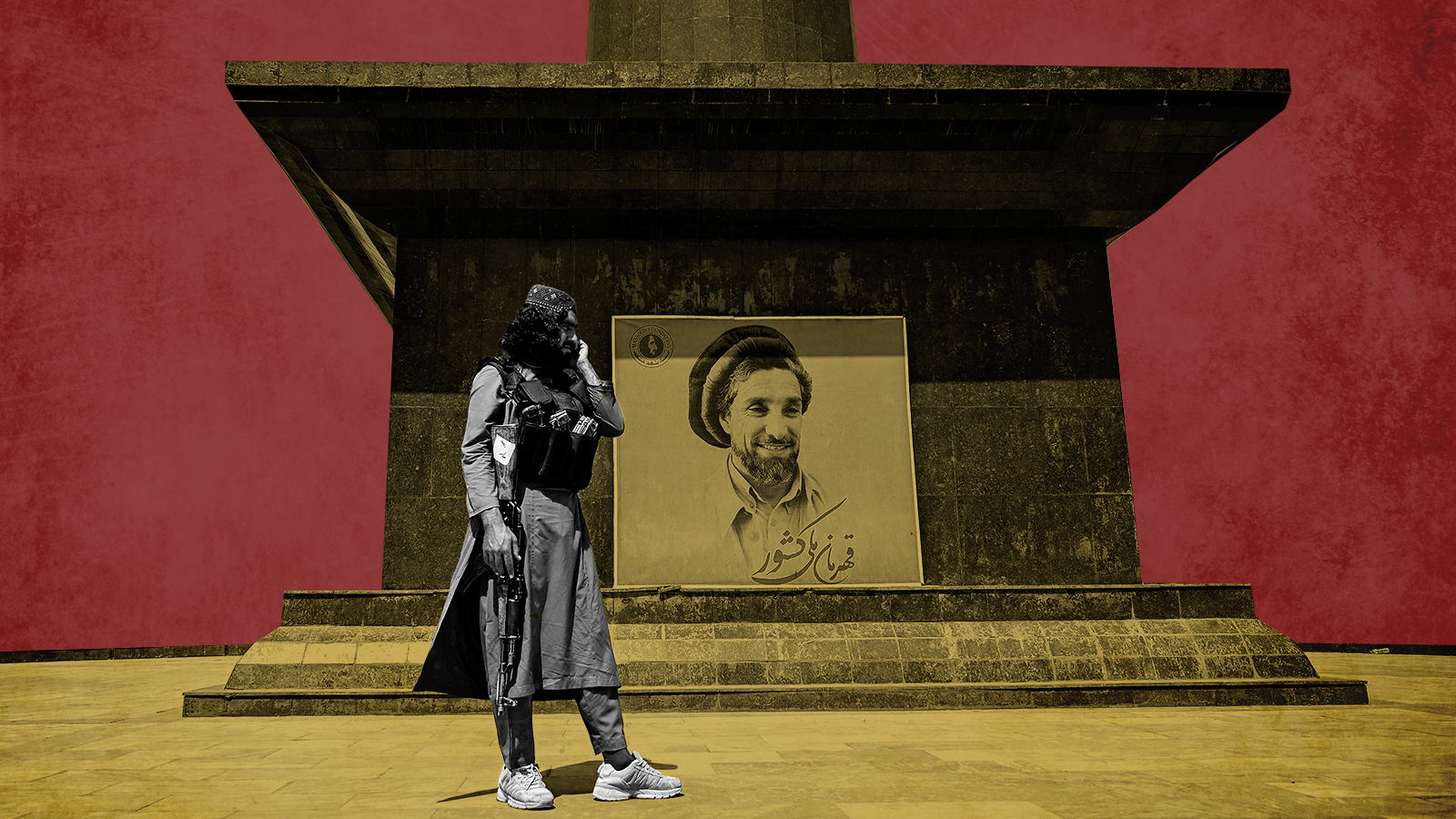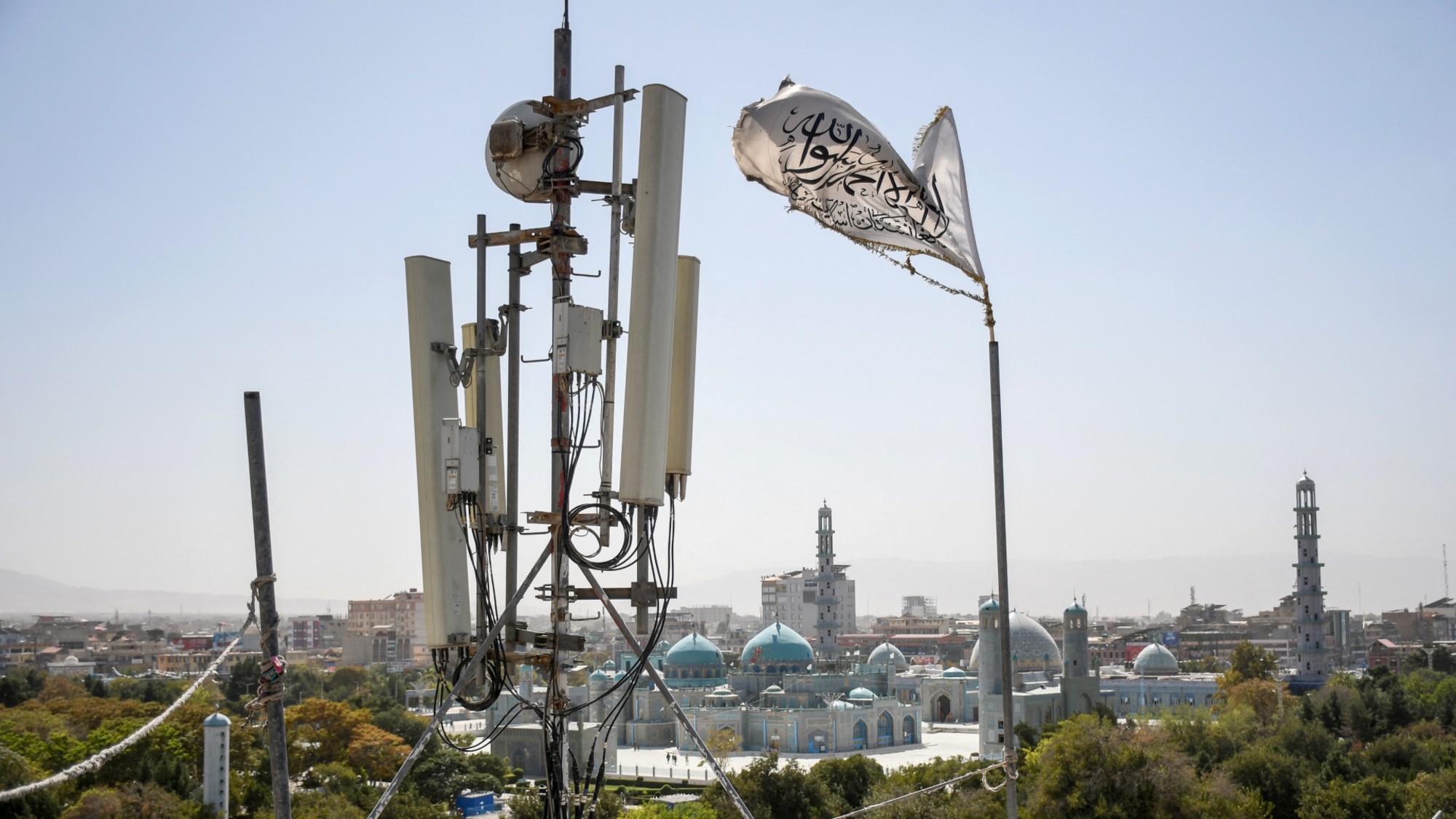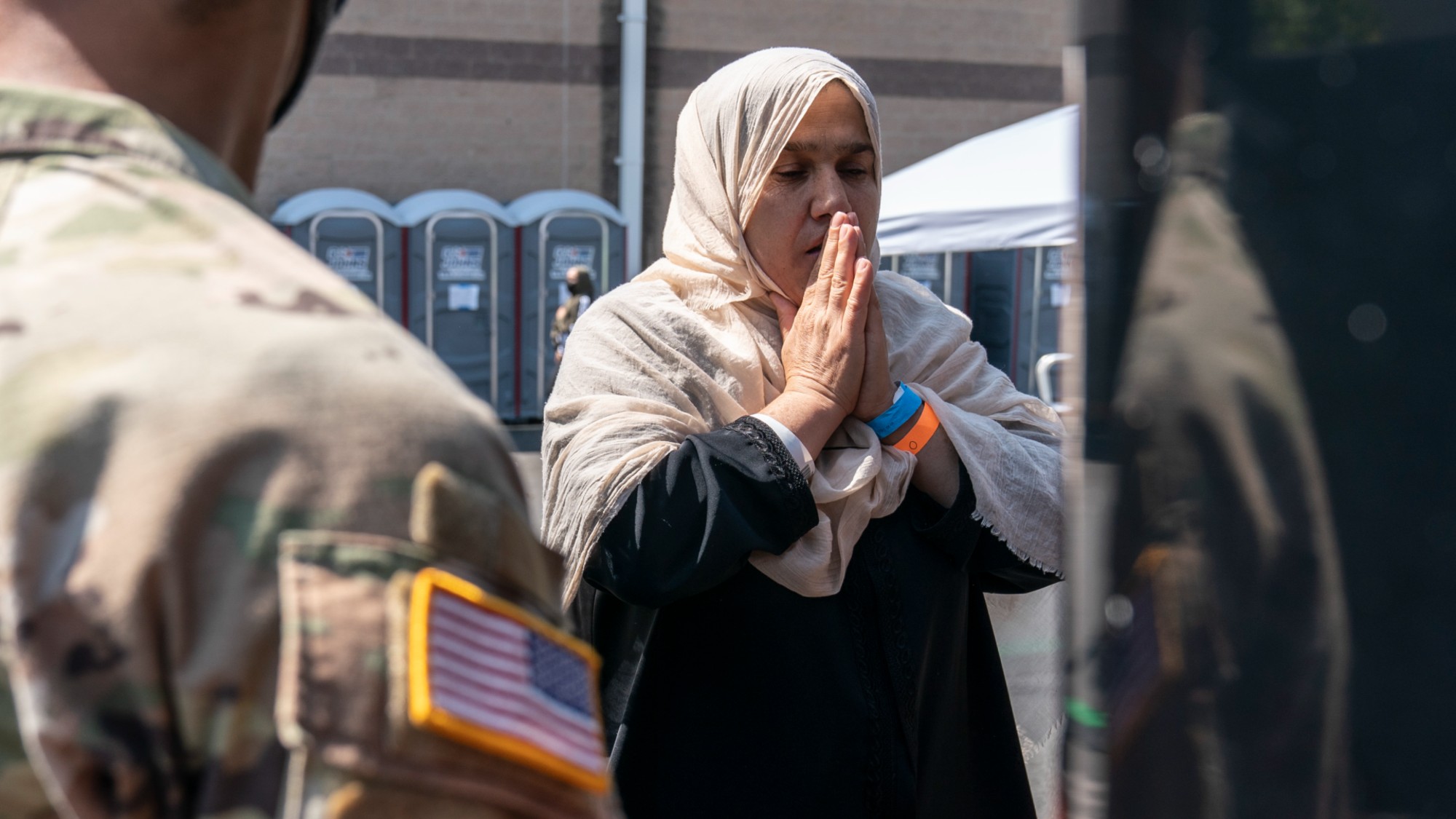The Taliban 2.0, explained
The Taliban is back in power in Afghanistan for the first time in two decades. This time, the group is facing a different geopolitical landscape, and claiming to have modernized.


A free daily email with the biggest news stories of the day – and the best features from TheWeek.com
You are now subscribed
Your newsletter sign-up was successful
The Taliban is back in power in Afghanistan for the first time in two decades. This time, the group is facing a different geopolitical landscape, and claiming to have modernized. Here's everything you need to know:
What is the history of the Taliban?
Many of the Taliban's original leaders fought against the Soviet Union as members of the Afghan mujahideen in a lengthy, brutal conflict that lasted throughout the 1980s. But the group didn't emerge as a distinct entity until 1994 amid Afghanistan's civil war. After the fall of the Soviet-backed government in 1992, the leaders of the mujahadeen tried to form a government with a power-sharing agreement, but there were holdouts, which led to the bloody conflict. The war prompted the rise of the Taliban, who, under the leadership of Mullah Mohammad Omar, sought to rid Afghanistan of crime and corruption. Although Omar first set out with just 50 followers, the group quickly gained in popularity and, with financial and military support from Pakistan, grew to 15,000 members within months. By 1996, they had taken the capital Kabul, forcing the government into exile. They ruled most of Afghanistan until 2001, when the United States launched its post-9/11 invasion, determined to topple the Taliban, which was harboring Osama bin Laden and in a tense alliance with his al Qaeda terrorist organization. It didn't take long for the U.S. to push the Taliban across the border into Pakistan.
The Week
Escape your echo chamber. Get the facts behind the news, plus analysis from multiple perspectives.

Sign up for The Week's Free Newsletters
From our morning news briefing to a weekly Good News Newsletter, get the best of The Week delivered directly to your inbox.
From our morning news briefing to a weekly Good News Newsletter, get the best of The Week delivered directly to your inbox.
What have they been up to since?
The Taliban didn't just re-establish themselves out of the blue. They regrouped fairly quickly after the U.S. invasion to form an insurgency. Over time, they regained control of some districts throughout Afghanistan, and had an active presence in most of them; in 2015, they retook their first provincial capital, Kunduz. They also established an office in Doha, Qatar, in 2013. It was tasked with participating in political settlement talks with the U.S., even as they continued to make gains militarily. Eventually, the Taliban struck an agreement with the Trump administration in 2020 that set the stage for the withdrawal of U.S. forces.
What is their governing philosophy?
The Taliban is composed largely of ethnic Pashtuns hailing from eastern and southern Afghanistan who studied at Islamic schools in Pakistan (Taliban is Pashto for "students"). Their goal is to re-establish a state, the Islamic Emirate of Afghanistan, that is governed by a strict, but not necessarily traditional, interpretation of Sharia law. After coming to power, the Taliban began to impose bans on paintings, movies, and music. Women were required to wear the head-to-toe burqa known as the chadri and faced an employment ban. The Taliban also enacted harsh, sometimes public, punishment for violating the law. Something the Taliban did not do, however, was focus on social services, denying food and other basic amenities to underserved citizens.
A free daily email with the biggest news stories of the day – and the best features from TheWeek.com
How are they different from the first rule?
It remains to be seen. The Taliban claim that they've moderated and will be more lenient, especially toward women. Notably, they've adopted the official stance of no longer opposing education for women and girls. But there are plenty of skeptics. A 2020 report from Human Rights Watch clarifies that, at the time, girls were allowed to attend school in some Taliban-controlled districts, but the policy varied from place to place. Analysts have pointed out that the Taliban grew more repressive throughout their previous rule, and there's a sense that their perceived moderation is the result of a savvy public relations operation, aimed at drumming up support within Afghanistan and assuaging international concerns. There are fears that the tone will change once the world's attention is diverted. Already, there are reports of retribution killings and other displays of brutality and repression outside of Kabul, where most of the international media coverage is centered. Similarly, there's plenty of doubt that the group has ended its relationship with al Qaeda.
Will they have full control?
The Taliban have been engaged in talks with prominent Afghan political leaders who have remained in Kabul as they try to work out a peaceful transition of power. Other former rivals of the Taliban have reportedly sworn allegiance to or signaled that they're willing to support the group in recent days. The Taliban say they want the new government to be "inclusive," but have been vague on details, so it's unclear whether there will actually be any significant power-sharing or compromises.
Will there be a resistance?
An assembly of one is already underway in Panjshir province, which remained free from Soviet rule in the '80s and Taliban rule in the '90s and has not been conquered by the group this time around, either. Members of the Afghan National Security Forces are reportedly rallying around Ahmad Massoud, the son of a mujahideen leader and Afghan national hero who fought against the Soviets and later led the last resistance against the Taliban before he was assassinated two days before 9/11. The younger Massoud is reportedly willing to negotiate with the Taliban, but has maintained that he's prepared to fight if necessary. In Baghlan province, meanwhile, locals forced the Taliban out of three districts last week, the first instance of successful pushback, but the Taliban reportedly quickly reclaimed control a few days later.
Can it last?
There isn't a lot of hope for a sustained armed resistance, even in Panjshir, which is surrounded and has no access to an international border — especially now that the Taliban is reportedly preparing an offensive against the province. Elsewhere, civilians in Afghanistan have orchestrated protests, some of which are led by women, in opposition to Taliban rule. There's a lot of international concern about what may befall these protesters, and the Taliban have already responded violently to some demonstrations, but it's possible the regime will decide it's better off partially appeasing the movement.
How are other countries expected to deal with them?
It will undoubtedly vary. Don't expect many Western world powers to recognize the Taliban's Islamic Emirate of Afghanistan, but they'll likely have to engage with them in some capacity. The United States already is, as it tries to complete evacuations. The United Kingdom is preaching patience, and holding out hope the group really has changed. Iran, meanwhile, has traditionally not been fond of the Taliban, but will reportedly try to make things work this time and has quickly restarted fuel exports to Afghanistan. Pakistan, despite denying allegations that it financially supports the group, will seemingly welcome the regime change, and its neighbor and rival India will not. China and Russia may see an opening in Afghanistan after the U.S. exit. China is reportedly willing to recognize the Taliban's government and work to end their United Nations designation as a terrorist organization — but it will likely insist the group doesn't support the East Turkestan Islamic Movement, a coalition of Uighur fighters against Chinese oppression of the ethnic group. Moscow will likely follow Beijing's lead.
Tim is a staff writer at The Week and has contributed to Bedford and Bowery and The New York Transatlantic. He is a graduate of Occidental College and NYU's journalism school. Tim enjoys writing about baseball, Europe, and extinct megafauna. He lives in New York City.
-
 5 cinematic cartoons about Bezos betting big on 'Melania'
5 cinematic cartoons about Bezos betting big on 'Melania'Cartoons Artists take on a girlboss, a fetching newspaper, and more
-
 The fall of the generals: China’s military purge
The fall of the generals: China’s military purgeIn the Spotlight Xi Jinping’s extraordinary removal of senior general proves that no-one is safe from anti-corruption drive that has investigated millions
-
 Why the Gorton and Denton by-election is a ‘Frankenstein’s monster’
Why the Gorton and Denton by-election is a ‘Frankenstein’s monster’Talking Point Reform and the Greens have the Labour seat in their sights, but the constituency’s complex demographics make messaging tricky
-
 The billionaires’ wealth tax: a catastrophe for California?
The billionaires’ wealth tax: a catastrophe for California?Talking Point Peter Thiel and Larry Page preparing to change state residency
-
 Bari Weiss’ ‘60 Minutes’ scandal is about more than one report
Bari Weiss’ ‘60 Minutes’ scandal is about more than one reportIN THE SPOTLIGHT By blocking an approved segment on a controversial prison holding US deportees in El Salvador, the editor-in-chief of CBS News has become the main story
-
 Has Zohran Mamdani shown the Democrats how to win again?
Has Zohran Mamdani shown the Democrats how to win again?Today’s Big Question New York City mayoral election touted as victory for left-wing populists but moderate centrist wins elsewhere present more complex path for Democratic Party
-
 Millions turn out for anti-Trump ‘No Kings’ rallies
Millions turn out for anti-Trump ‘No Kings’ ralliesSpeed Read An estimated 7 million people participated, 2 million more than at the first ‘No Kings’ protest in June
-
 ‘The Taliban delivers yet another brutal blow’
‘The Taliban delivers yet another brutal blow’Instant Opinion Opinion, comment and editorials of the day
-
 It is 'beyond time for us to seek bipartisan solutions' for Afghanistan
It is 'beyond time for us to seek bipartisan solutions' for AfghanistanInstant Opinion Opinion, comment and editorials of the day
-
 Ghislaine Maxwell: angling for a Trump pardon
Ghislaine Maxwell: angling for a Trump pardonTalking Point Convicted sex trafficker's testimony could shed new light on president's links to Jeffrey Epstein
-
 The last words and final moments of 40 presidents
The last words and final moments of 40 presidentsThe Explainer Some are eloquent quotes worthy of the holders of the highest office in the nation, and others... aren't
